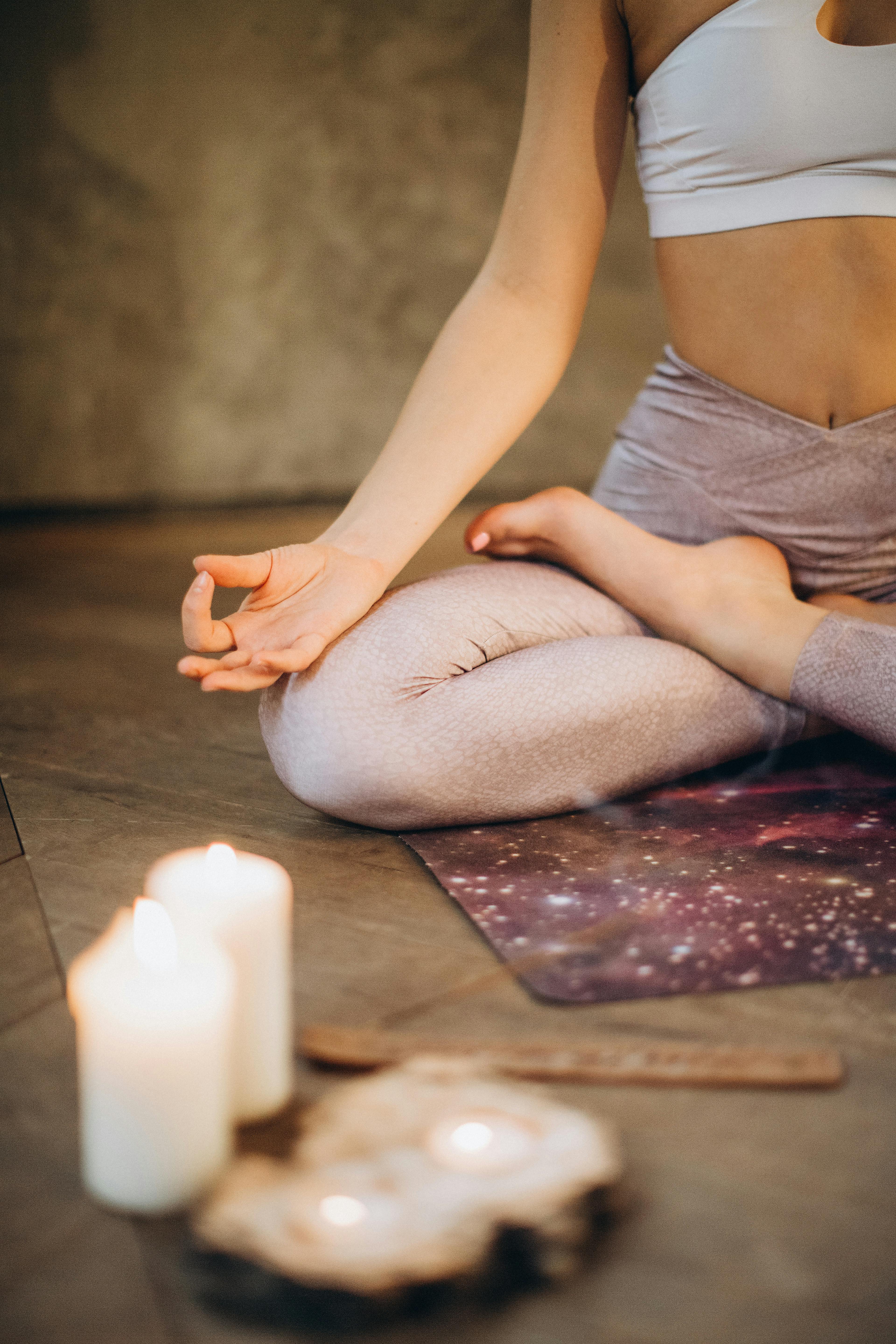
Top Mental Health Tips for Stress-Free Living (Wellness)
Stress-free living isn’t about eliminating challenges — it’s about building mental fitness. In this magazine-style guide, you’ll learn science-backed habits to reduce daily stress, strengthen resilience, and feel calmer. We cover breathing tools that work in minutes, mindset shifts that last, sleep and movement routines, nutrition for mood, digital boundaries, community, and a 7-day plan to put it all into action.
What Stress Really Is (and Why It’s Not the Enemy)
Stress is your body’s built-in alarm system. In short bursts, it helps you focus, meet deadlines, and lift heavy groceries. Problems start when stress becomes chronic — your “alarm” never turns off. Chronic stress can disturb sleep, worsen mood, impact blood sugar and heart health, and reduce cognitive performance.

Good news: evidence-based habits can dial the system down. You don’t need perfection — you need a few reliable levers you’ll actually use.
Rapid Relief Tools You Can Use in 60–180 Seconds
When stress spikes, reach for techniques that quickly nudge your nervous system from “fight/flight” to “rest/restore.”
1) Physiological Sigh (2 breaths + slow exhale)
- Inhale through the nose… then take a second, shorter inhale on top.
- Exhale slowly through the mouth until the lungs feel empty.
- Repeat 1–3 times. Many people feel calmer within 60–90 seconds.
2) 4-7-8 Breathing (about 2 minutes)
- Inhale 4 seconds → Hold 7 → Exhale 8. Repeat 4–8 rounds.
- Great before sleep or a stressful meeting.
3) Five-Senses Grounding
Name: 5 things you see, 4 touch, 3 hear, 2 smell, 1 taste. This anchors the mind to the present moment and reduces ruminations.
4) Mini-Reset Walk (sunlight + movement)
Go outside for 5–10 minutes. Natural light supports your circadian rhythm, and gentle movement reduces muscle tension.
| Quick Tool | Best For | Time |
|---|---|---|
| Physiological sigh | Sharp spikes of anxiety | 60–90s |
| 4-7-8 breathing | Winding down / sleep | 2–4 min |
| Five-senses grounding | Racing thoughts | 2–3 min |
| Mini-reset walk | Muscle stress, low mood | 5–10 min |
Daily Foundations: Sleep, Movement, Sunlight, Nutrition
Think of these as the “big rocks” of mental wellness. They quietly lower stress reactivity and make everything else easier.
Sleep: Protect Your 24-Hour Rhythm
- Keep a consistent sleep/wake time (±60 minutes).
- Get morning light within 1 hour of waking.
- Dim lights & screens 1–2 hours before bed; try do not disturb mode.
- Reserve bed for sleep & intimacy; if awake >20 minutes, get up briefly and return sleepy.
Learn more: CDC: Sleep and Sleep Disorders

Movement: Nature’s Anti-Stress Medicine
- Minimum: Aim for 150 minutes/week of moderate activity (e.g., brisk walking).
- Add 2+ weekly strength sessions; keep it simple: push, pull, hinge, squat, carry.
- On busy days, “exercise snacks” (3–10 minutes) still count.
Evidence overview: Harvard Health: Exercise & Mood
Sunlight & Nature: Mood Multipliers
Morning light anchors your body clock; green spaces reduce rumination. Try a 10–15 minute outdoor break before noon.
Nutrition: Fuel for a Calm Brain
- Prioritize fiber-rich plants (veggies, fruit, legumes), omega-3s (fish, chia/flax), and steady protein.
- Balance caffeine; avoid high-sugar “spikes” that can worsen irritability.
- Hydrate early; thirst often mimics fatigue and brain fog.
Digest more here: NIH: Diet & Mental Health
Mindset & Resilience: CBT-Lite, Self-Compassion, Gratitude
Resilience is a skill. You can train it with simple frameworks.
CBT-Lite: Catch → Challenge → Choose
- Catch the thought (“I’ll fail this presentation”).
- Challenge it (“What evidence supports or contradicts this?”).
- Choose a helpful reframe (“I’ve prepared; I can handle questions”).
Self-Compassion Micro-Script
Try: “This is hard. Stress is human. I can be kind to myself and take the next small step.” Self-compassion improves persistence without lowering standards.
Gratitude That Doesn’t Feel Cheesy
Write one sentence about why you appreciated one small thing today. Specificity beats lists.
“You don’t control waves, but you can learn to surf them. Stress resilience is your surfboard.”
Professional guidance: American Psychological Association: Stress
Breathwork & Meditation: Practical Routines
Meditation isn’t about emptying the mind. It’s practicing attention. Start tiny and focus on consistency.
10-Minute Balanced Routine
- 2 min: 4-7-8 breathing
- 6 min: Focus on the breath (inhale… exhale). When the mind wanders, gently return.
- 2 min: Loving-kindness (wish yourself and others safety, health, ease).
When You “Can’t Sit Still”
Try walking meditation: walk slowly and place all attention on the sensation of each step.
Free guides: WHO: Mental Health · App options: Headspace, Calm

Digital Boundaries & Focus
Notifications fragment attention and amplify stress. Build a phone that serves you — not the other way around.
- Silence non-human notifications (likes, promos). Keep calls/messages.
- Batch email/social checks (e.g., noon and 5pm).
- Home screen = tools (calendar, notes, camera), not time-sinks.
- Use focus modes for deep work and sleep.
Helpful read: NHS: Digital Detox Tips
Relationships, Purpose & Community
Human connection buffers stress. Even brief positive interactions (a sincere compliment, a check-in text) boost mood.
- Schedule one “micro-connection” daily (voice note, short call).
- Volunteer or serve — purpose is a profound anti-stress lever.
- Practice boundaries: “No” is a complete sentence.
Explore lifestyle & brain health here: Can Lifestyle Cause Dementia?

Workday Protocol: Low-Stress Productivity
Design Your Day
- Start: 5–10 minutes plan + 1 quick win to build momentum.
- Mid-morning: 52/17 rhythm — 52 minutes focus, 17 minutes real break.
- Afternoon: 10-minute sunlight walk to reboot energy.
- End: 3-line daily log (What I finished, What I learned, What’s next).
Meetings Without Meltdowns
- Circulate agendas; timebox; leave 5 minutes to summarize decisions/owners.
- Default to 25- and 50-minute slots to preserve buffer time.
Boundaries That Stick
Decide your “office hours” and publish them. Protect one meeting-free block daily for deep work.
Your 7-Day Stress-Less Plan
Use this as a template. Swap pieces to fit your life.
| Day | Morning | Midday | Evening | 2-Minute SOS |
|---|---|---|---|---|
| Mon | Sunlight + 4-7-8 (4 rounds) | 10-min walk + protein lunch | 15-min yoga + journal 3 lines | Physiological sigh × 3 |
| Tue | Focus block (52/17) + tea ritual | Strength “big 4” (15 min) | Screen-dim 90 minutes pre-bed | 5-senses grounding |
| Wed | Gratitude sentence + stretch | Nature break (10 min) | CBT-Lite: Catch-Challenge-Choose | 4-7-8 (2 min) |
| Thu | Plan day + 1 quick win | Phone focus mode (2 hrs) | Breath meditation (10 min) | Mini-reset walk |
| Fri | Protein breakfast + daylight | Connect: 5-minute call | Fun plan for weekend | Physiological sigh |
| Sat | Longer movement (30–45 min) | Meal prep 2 proteins + veg | Date/friends / family time | Grounding scan (1–2 min) |
| Sun | Sleep-in ≤60 min + sunlight | Reflect & reset: plan week | Gratitude + bath/soak | 4-7-8 (before bed) |
Chronic stress affects metabolic health too — see how daily habits relate to blood sugar in How Lifestyle Affects Diabetes.
FAQ: Quick Answers
How long until I feel less stressed?
Many people feel immediate relief from a 60–120 second breathing exercise. Foundational changes (sleep regularity, movement) often show results in 1–2 weeks.
What if I keep “falling off” my routine?
Expect it. Use the “Rule of One”: when you miss, do one tiny step now (one minute of breathwork, one line of journaling) to rebuild momentum.
When should I seek professional help?
If stress interferes with daily functioning, relationships, or you notice persistent low mood, sleep changes, or thoughts of self-harm, contact a licensed professional promptly. Start here: WHO: Mental Health or your local health service.
Comments
Post a Comment
We love your feedback! Please share your thoughts below. All comments are moderated to ensure a positive and helpful community. Spam or inappropriate comments will be removed.